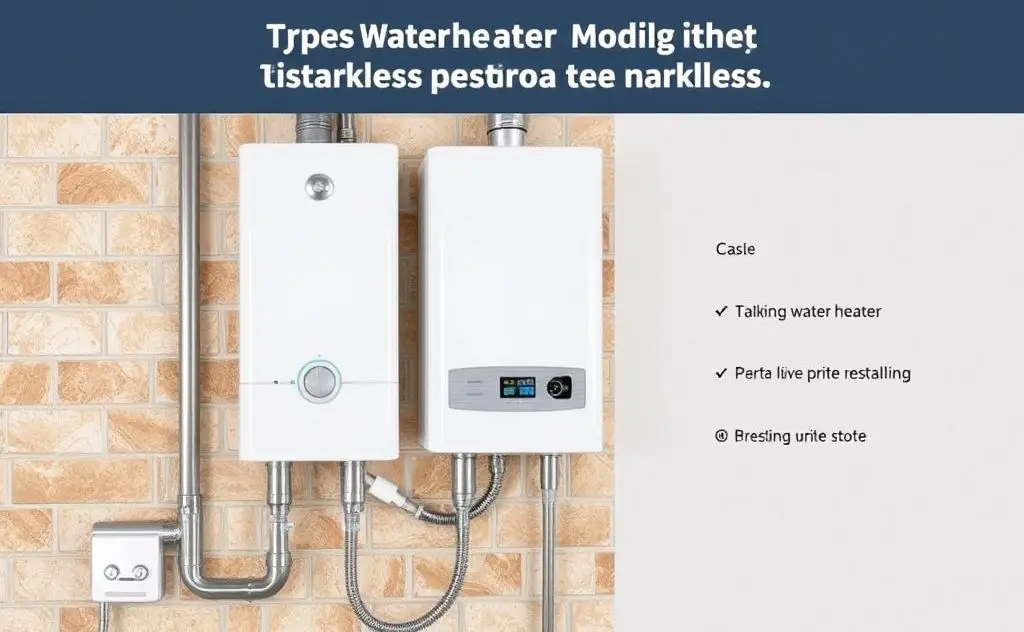Tankless water heater installation is expensive due to high equipment costs, complex installation requirements, and the need for specialized labor and permits.
Tankless water heaters offer energy efficiency and endless hot water, but their installation costs often surprise homeowners. Understanding the factors behind these expenses can help you budget wisely.

Average Tankless Water Heater Installation Costs
The typical installation ranges from $5,400 to $7,400 including the unit, with labor alone costing $1,800-$3,500. This compares to $1,500-$1,800 for traditional tank replacements. Several key factors drive these higher costs.
Complex Installation Requirements
Tankless systems demand more than simple swaps:
- Venting systems often require complete redesign
- Gas lines frequently need upgrading to handle higher BTU demands
- Electrical systems may require new circuits or panel upgrades
Unlike traditional heaters where you can replace components individually, tankless installations often involve full system overhauls.
Key Cost Factors Explained
Venting System Complexity
Tankless units need specialized venting:
| Vent Type | Average Cost | Notes |
|---|---|---|
| Direct Vent | $500-$1,000 | Most common for gas models |
| Power Vent | $800-$1,500 | Requires electrical connection |
| Concentric Vent | $1,000-$2,000 | For sidewall installations |
Gas Line Upgrades
Most homes need gas line modifications:
- Existing lines often insufficient for tankless BTU requirements
- New piping runs average $15-$25 per linear foot
- Pressure regulator upgrades may be needed ($150-$300)
According to plumbing experts, gas line work accounts for 20-30% of total installation costs.
Electrical System Requirements
Electric tankless models demand significant power:
- Most require 240V circuits (vs 120V for traditional heaters)
- New breaker panel installations can cost $1,500-$3,000
- Whole-home units may need multiple 40-50 amp circuits
Additional Cost Considerations
Permitting and Inspections
Most jurisdictions require:
- Plumbing permits ($50-$200)
- Electrical permits ($100-$300)
- Gas permits ($75-$250)
- Final inspections ($100-$400)
Unit Quality and Features
Premium models like the Rinnai RL94EN cost more but offer better performance and longevity. Key price differentiators include:
- Flow rate capacity (GPM)
- Energy efficiency rating
- Smart connectivity features
- Warranty length
Long-Term Value vs Upfront Cost
While expensive initially, tankless heaters provide:
- 20-30% higher energy efficiency
- 2-3x longer lifespan than tank models
- Potential utility rebates ($300-$800)
- Space savings (wall-mounted design)
The U.S. Department of Energy notes tankless units can save $100+ annually for homes using 41+ gallons daily.
Regional Price Variations
Installation costs vary significantly by location:
- Urban areas: 20-30% higher labor rates
- Cold climates: Additional freeze protection needed
- Historic homes: Often require more extensive retrofitting
Smart Ways to Reduce Costs
Strategic Installation Planning
- Install near existing gas/electrical lines
- Choose locations minimizing vent run length
- Consider point-of-use units for remote fixtures
Timing Your Installation
- Off-season discounts (late spring/early fall)
- Bundle with other plumbing projects
- Take advantage of manufacturer promotions
